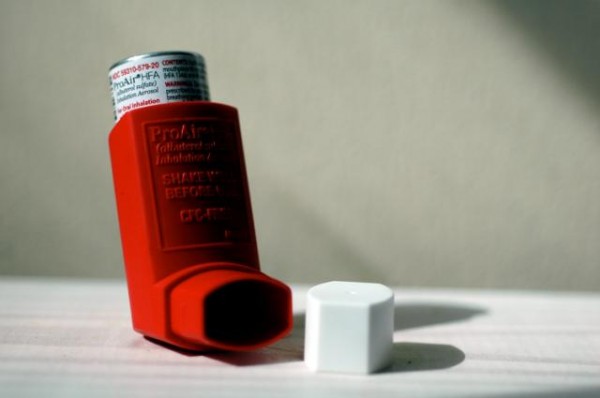Asthma as a Trigger for Severity of COVID-19, Ruled Out by Science

Studies said, inhaled corticosteroids, drugs commonly administered as protection from asthma attacks, may also lessen the ability of COVID-19 to develop a contagion.
New research finds, asthma does not seem to increase the danger for an individual contracting COVID-19 or impact its severity.
A group of researchers from Rutgers University found that individuals who have asthma, as well as those who have reduced function of lungs and are currently undergoing treatment to manage "asthmatic inflammation," appear to have no worse impact by COVID-19 than a person who is not asthmatic.
According to pulmonary critical care doctor and Rutgers Institute for Translational Medicine and Science Director, Reynold Panettieri Jr., people's older age and specific health conditions such as high blood pressure, heart disease, diabetes, chronic obstructive pulmonary illness, and obesity, among others, are risk factors reported for the progression of the infectious disease.
Nevertheless, according to the study, asthma is not proven as one of the risk factors for the severity of COVID-19 yet.
ALSO READ: While More Get Infected with COVID-19, Fewer Need Ventilators, Here's Why
Inhaled Corticosteroids Contribute to Reduced Risk of COVID-19 Severity
There is insufficient information, according to Panettieri Jr., "If it is psychological or the treatment's outcome for the management of inflammation."
Essentially, studies said that inhaled corticosteroids, drugs commonly administered as protection from asthma attacks, may also lessen the ability of the virus to develop a contagion.
Nevertheless, some research presented that steroids tend to decrease the immune system of the body and may possibly worsen the inflammatory reaction.
Both children and young adults alike, who have asthma, suffer primarily from allergic inflammation. Meanwhile, older adults encountering similar type "airway inflammation" have the possibility as well, of suffering from the so-called "eosinophilic asthma," a more severe asthma form.
In conditions like this, medical reports indicate that individuals suffer from high levels of white blood cells that contribute to the body's fight against infection, which can result in inflammation in the nasal passages, sinuses, and lower respiratory tract among others, possibly making them more at risk for COVID-19.
DON'T MISS THIS: Is There a Link Between Your Blood Type and COVID-19? Here's What the Experts Say
Enzyme's Benefits in Response to the Virus
Additionally, based on research, "an enzyme attached to the cell membranes" in the kidney, heart, lungs intestines and arteries, that has been presented to be an entry point for COVID-19 into cells is augmented in reaction to the virus.
The said study indicated that such enzyme is believed to be advantageous in terms of clearing the other respiratory-related viruses, particularly in children.
The manner the enzyme impacts COVID-19's ability to infest people with asthma remains unclear, the said study indicated.
Nevertheless, older individuals who have asthma and with high blood pressure, heart ailment, or diabetes may have the same COVID-19 instances, as non-asthmatics with those occurrences, and scientists pointed out.
Later studies would reportedly deal if inhaled steroids in individuals suffering from asthma or allergies had either increased or decreased risks of COVID-19 contagion.
More so, research would also need to address whether such impacts are dissimilar according to the type of steroid the said inhaled steroids contain.
Perhaps, the reason asthma is being linked to COVID-19 is, because medical experts describe it as "a chronic lung disease."
During an attack the airways' sides in lungs become swollen, and the and the airways shrunk, making it much more difficult to breathe.
Previously known as a rare condition, asthma is currently considered a common illness, particularly among children. In the US, over 25 million individuals have asthma, from which around six million are children.
IN CASE YOU MISSED THIS: Scientists Ask WHO to Revise Recommendations, Claiming COVID-19 Is Airborne
Jul 07, 2020 08:50 AM EDT





